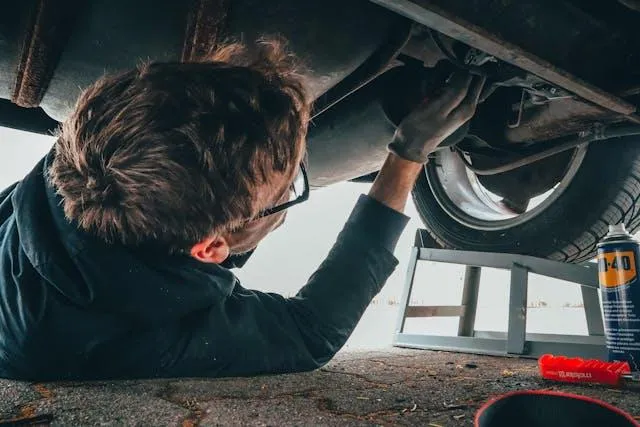
How Seasonal Weather in Mississauga Affects Your Car Maintenance
If you’ve lived in Mississauga long enough, you know how dramatically the weather changes throughout the year. From freezing winters and heavy snow to humid summers and rainy fall days, each season puts unique stress on your car.
Many drivers only think about car maintenance when something breaks, but seasonal weather plays a big role in how well your vehicle performs. Ignoring these seasonal needs can shorten your car’s lifespan, affect safety, and lead to costly repairs.
In this blog, we’ll explore how Mississauga’s changing seasons affect your vehicle, which areas of maintenance you should focus on, and how to prepare your car for year-round performance.
How Mississauga’s Seasons Impact Car Maintenance
Every season presents its own challenges for vehicles. Here are the main factors drivers should keep in mind.
Winter: Extreme Cold and Snow
Battery strain: Cold temperatures reduce battery power, making it harder to start your car.
Tire performance: All-season tires harden in the cold, while winter tires provide better grip and safety.
Salt damage: Road salt prevents ice but causes rust and corrosion on your vehicle’s undercarriage.
Fluids thickening: Oil and transmission fluids may thicken in the cold, affecting performance.
Spring: Rain and Temperature Swings
Worn wipers: After winter, wiper blades often need replacement to handle spring rains.
Alignment issues: Potholes from thawing roads can damage suspension and alignment.
Brake wear: Moisture can impact brake performance, especially if winter salt buildup wasn’t cleaned off.
Summer: Heat and Humidity
Overheating risks: High temperatures strain cooling systems and air conditioning.
Tire blowouts: Hot pavement raises tire pressure and increases blowout risk.
Fluid evaporation: Coolant and transmission fluids can evaporate faster in extreme heat.
Cabin comfort: Air conditioning system health is crucial for summer driving comfort.
Fall: Cool, Wet, and Windy Conditions
Tire readiness: Cooler temps signal the need to switch to winter tires before the snow.
Visibility issues: Shorter days and foggy mornings require reliable headlights and wipers.
Battery checks: Fall is the best time to test your battery before winter sets in.
Seasonal Maintenance Checklist
When preparing your car for Mississauga’s seasonal changes, follow these steps to stay ahead of issues.
Step 1: Inspect and Replace Tires
Switch between winter and all-season tires at the right time.
Check tread depth and tire pressure regularly.
Step 2: Test the Battery
Have your battery tested in the fall before winter arrives.
Replace it if it’s weak—cold weather can finish off an old battery.
Step 3: Maintain Fluid Levels
Ensure oil, coolant, brake, and windshield washer fluids are topped up and clean.
Use winter-grade washer fluid to prevent freezing.
Step 4: Protect Against Rust
Get undercarriage washes after snowstorms to remove salt.
Apply rust protection treatments to extend the vehicle’s life.
Step 5: Check Brakes and Suspension
Seasonal potholes and icy conditions can damage these systems.
Have them inspected at least twice a year.
Step 6: Prepare for Emergencies
Carry a seasonal kit: ice scraper and blanket in winter, water and jumper cables in summer.
Always keep a spare tire and tools ready.
Frequently Asked Questions
Why does cold weather affect car batteries?
Cold temperatures slow the chemical reaction inside the battery, reducing its power output and making it harder to start the engine.
How often should I switch to winter tires in Mississauga?
Install winter tires when temperatures consistently drop below 7°C, usually in late October or early November.
Is road salt really that damaging?
Yes, salt accelerates corrosion and rust, especially on the undercarriage, brake lines, and exhaust system. Regular washes reduce this risk.
Can hot summer weather damage my car too?
Absolutely. Heat puts stress on your cooling system, tires, and fluids, which can lead to breakdowns if not maintained properly.
Do I need seasonal inspections if I keep up with regular maintenance?
Yes. Seasonal inspections target weather-specific risks, like rust prevention in winter or cooling checks in summer, which standard maintenance may not cover.
Conclusion
In Mississauga, where winters are harsh and summers can be hot and humid, seasonal car maintenance is not optional—it’s essential. Preparing your vehicle for each season helps prevent breakdowns, extends the life of your car, and ensures safety in every driving condition.
By staying ahead of the weather and scheduling timely maintenance, you’ll avoid costly repairs and enjoy peace of mind year-round.